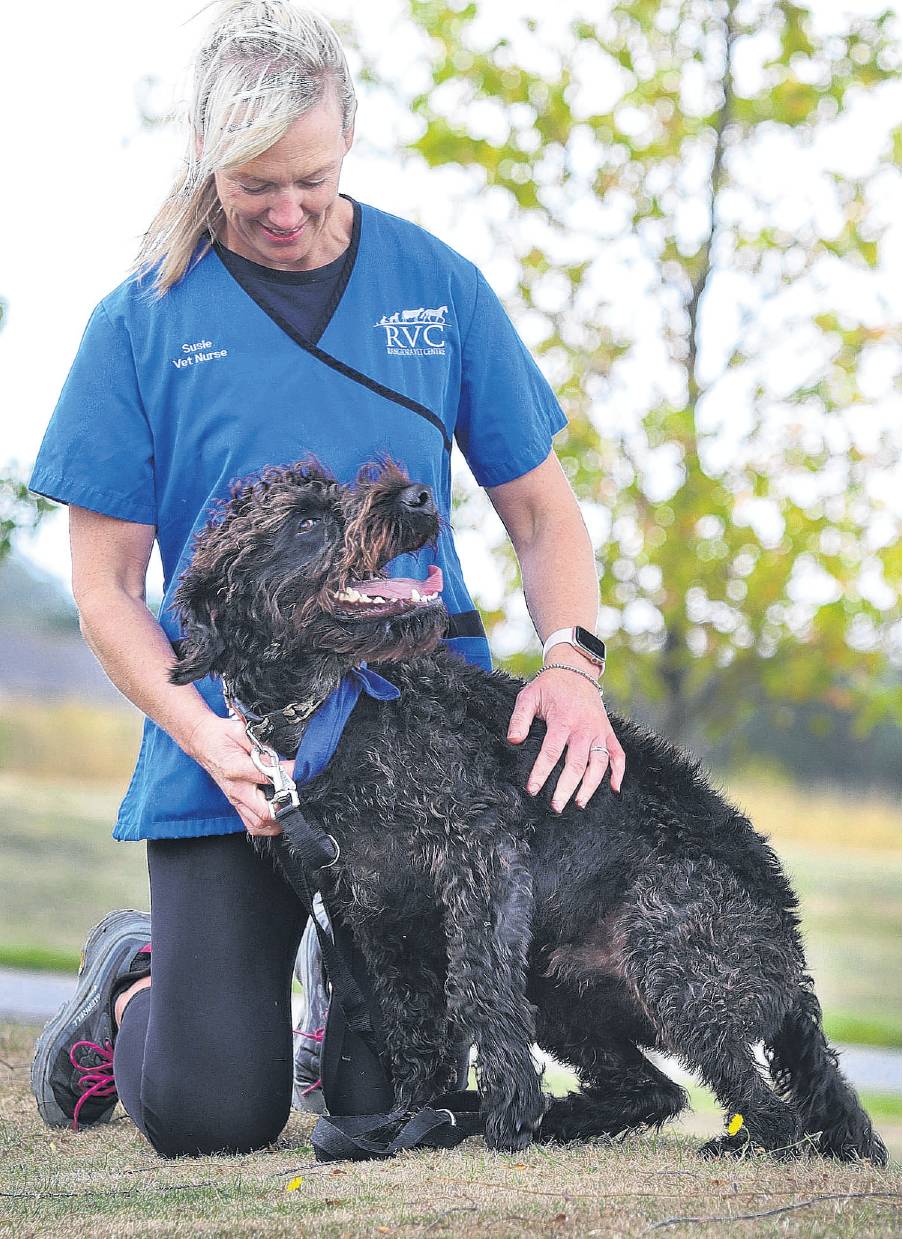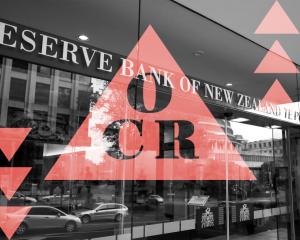
The three-and-a-half-year-old Terrier steps up as a blood donor when beloved dogs and cats suffer life-threatening surgeries that require blood transfusions.
He is a pointer cross airedale terrier.
When he came into Rangiora Veterinary Centre (RVC) one day with his litter mates for his vaccinations, he caught the eye of vet nurse and team leader at RVC’s Pet Hospital, Susie Lowe.
She had just lost her dog and was looking for someone to fill the gap in her family's lives.
‘‘He was the cutest puppy. It just seemed right. We have no regrets as he’s the best.’’
Once Woody was old enough, Susie signed him up as a donor dog.
‘‘I signed him up because I know how important it can be to have the blood there when we need it.
‘‘I’d want him to be able to have a transfusion if he ever needed one, so why not help others in need.’’
A blood donor dog is very similar to a human blood donor.
Dogs and cats suffer similar life-threatening events requiring blood transfusions, and Rangiora Vets keep canine blood in the clinic for such emergencies.
Susie says they restock every four weeks so the need for donors is always there.
Blood donor dogs are so important, many of the staff at RVC and some clients kindly volunteer their pets to help save other pets lives.
Susie says a blood donation is a simple process, however, it is something that can be quite intrusive.
‘‘A dog that’s happy at the clinic and friendly is super important.’’
Donor animals have to pass a test before they are put on a list.
‘‘They’ll get a tour of the clinic on their first visit to make sure they’re happy in the environment, comfortable being handled and generally not stressed by being in a strange place,’’ she says.
The actual donation takes about half an hour. The dog will have a vet's assessment to check they’re in good health that day, then they’re given a light sedation as they need to stay as still as possible during the blood draw.
‘‘Once sleepy we lie them down on the table and take blood from the jugular in the neck.
‘‘The area is clipped and cleaned up to make it sterile, then the needle is inserted to take the blood.’’
Susie says the aim is to take between 400mls and 500mls.
Once the dog is done they get some IV fluids to replace the volume of blood loss, then when awake and mobile they get a big tasty bowl of food.
The RVC donors receive a goodie pack and their next vaccination free. Susie says the demand for blood for animal surgeries varies.
‘‘Sometimes we need new blood every couple of weeks, other times it can be a while till we need some. It depends on what emergencies or hospital cases we have in.’’
Staff try to keep the clinic stocked with fresh blood.
‘‘We need new donors every month.
‘‘We try not to use the same donor more than a couple of times a year and they have to wait at least three months between donations.’’
‘‘We’re always looking for more volunteers.’’
Susie says many owners don’t realise the clinic does transfusions for pets. ‘‘They’re often quite surprised.
‘‘Our hospital here is full of amazing doctors and nurses who do incredible things every day.’’
Nationally the NZ Companion Animal Blood Bank supplies blood and frozen plasma to vet clinics.
But Susie says keeping blood on site is far more cost-effective and handy for them.
- To find out more about blood donor dogs contact Rangiora Veterinary Centre













